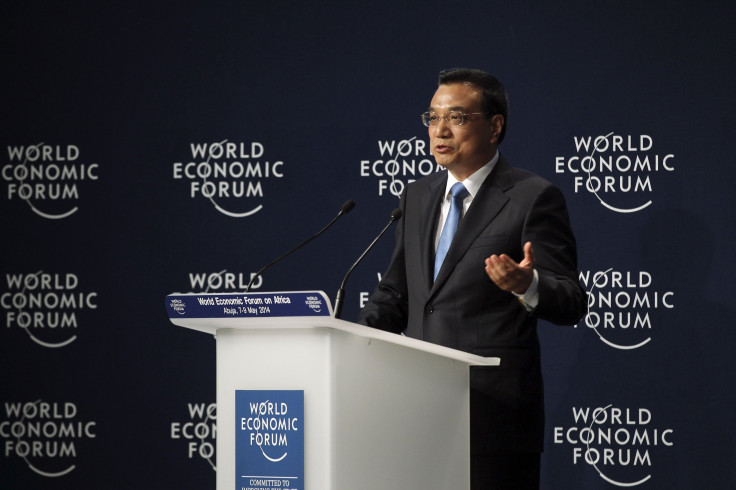Chinese Premier Li Keqiang Vows To Help Build A Railway Through Africa 'With No Strings Attached'

For more than a century, Africans have nursed the dream of taking a train across the continent, only to see various railroad schemes crash and burn. Now, Chinese Premier Li Keqiang is vowing to make it come true, expressing support for a continent-wide railroad network in Africa, a bold promise and a tall order but one that could transform the economy.
In recent years, China has started to shift some of its public investment focus in Africa away from natural resources and toward infrastructure, a sector badly in need of development to fuel economic growth, but historically plagued with logistical and political challenges. But the question remains whether the Chinese will succeed where others have failed.
In a speech at the World Economic Forum in Nigeria on Wednesday, the premier promised his support for a high-speed rail network connecting African capitals, emphasizing that his vow comes “with no political strings attached," to address concerns over China's growing influence in the region.
Infrastructure development is badly needed in the fast-growing continent. Poor conditions on roads, railways and harbors add an estimated 30 to 40 percent to costs of trading goods among African countries, according to the Infrastructure Consortium of Africa. This is one of the largest deterrents to foreign investment, but also a major opportunity.
The financing of infrastructure, including rail transportation, is one of the most important ways Africa can “seize the opportunities that regional integration offers for economic transformation,” by further integrating local economies, according to a report from the Boston Consulting Group released at the WEF that outlined the importance of the sector, as well as the related challenges..
“The world is eager to do business with Africa, but finds it difficult to access African markets, especially in the interior, due to poor infrastructure,” wrote Andre Pottas, advisory leader for sub-Saharan Africa at Deloitte, in a report.
He estimates that more than $93 billion will be needed over the next decade to overhaul the systems now in place, but only about $25 billion is being spent on capital expenditures.
This has left a giant hole in financing -- and an opportunity -- which China is eagerly exploring.
“While initially Beijing seemed to be primarily motivated by its insatiable thirst for natural resources, its interests have steadily become more diverse and complex,” wrote Loro Horta, Africa specialist for the S. Rajaratnam School of International Studies at Nanyang Technological University in Singapore, in a recent note.
Li's promise follows dozens of agreements made with African leaders during his four-country visit to the continent this week, during which he also said China would set aside $2 billion for an African Development Fund.
On Wednesday, the premier signed a slew of deals in Nigeria, including cooperation on infrastructure projects. Though exact details were not disclosed, the meeting came just two days after the China Railway Construction Corporation made a $13.1 billion deal to build a 860-mile high-speed railway in Nigeria that would employ more than 4,000 workers during construction, and 5,000 more afterward, according to China Daily.
Li started his African visit in Ethiopia, and will soon be visiting in Kenya and Angola.
© Copyright IBTimes 2024. All rights reserved.





















